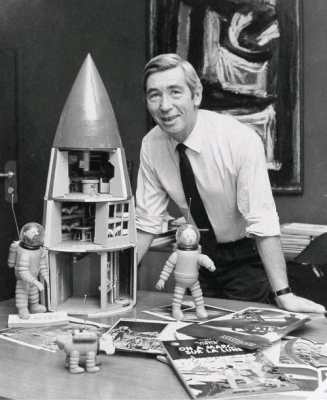
Before we find out what the "passive voice” is all about, let us find out what "voice" is. Voice refers to the verb that speaks either in active or passive voice. In most English sentences with an action verb, the subject performs the action shown by the verb.
Read the following sentences
(a) The car hit a tree.
(b) The painters have completed the work.
In these sentences, the subject (car, painters) acts upon the verb. What did the car do? It hit the tree. What have the painters done? They have completed the work. The sentences are framed in such a way that the subject is shown as doing the action. The action is done "on" someone or something (tree, work). This someone or something that "receives" the action is called the object (tree, work). In the above sentences, the verb is in the active voice.
Now, read these sentences
(a) The tree was hit by the car.
(b) The work has been completed by the painters.
The object has become the subject in these sentences. The subject is not acting. It is being acted upon. The subject and the verb are passive. These sentences, where the action is seen from the point of view of the object (car, work), are said to be in the passive voice. The object in the original sentence is now the subject. The method of describing the action has also changed. The verb is written in this way, but the meaning does not change. The car hit the tree. That does not change.
When you read, you will notice that a sentence in the active voice flows more smoothly and is easier to understand than the same sentence in the passive voice.
Example: We listen to good music. Good music is listened to by us. Which sentence is better?
Choose the active voice whenever possible.
Find out more about the passive voice of the verb
The first question here is, do we need the passive voice at all? Why can't we write all our sentences in the active voice and be done with it? Ha, that is not always possible.
The passive voice may be a better choice:
[1] When the doer of the action is unknown, unwanted, or not needed in the sentence.
Examples: The votes have been counted.
The wires were stolen.
[2] When the writer wishes to emphasize the action of the sentence rather than the doer of the action.
Examples: The long-jump record was broken yesterday.
The theft was investigated.
[3] For scientific writing or for describing a process.
Examples: Penicillin was discovered just before the war.
A beaker is filled with water. (The action is important, not who does it.)
Think of this scenario. You happen to break your mom's favourite vase. You know she will be furious. Your first instinct is to give her the news in the passive voice, where you do not have to mention the subject. You can say, 'The vase has been broken." By whom – the subject who did the action - can wait till she is less angry. See? You do need the passive voice, right?
Read the following speeches
See the difference in force when the speeches are expressed in the
Active Voice
A policeman to a man on a scooter: Hey, stop, stop! Why haven't you switched on the light? You can't drive a scooter without lights.
Man: But the street has lights!
(The policeman lets out the air in the scooter's tyres.)
Man: Hey, what are you doing? Policeman: You don't need air. The street has a lot of air!
Passive Voice
A policeman to a man on a scooter: Hey, stop, stop! Why hasn't the light been switched on? A scooter cannot be driven without lights.
Man: But the street has lights!
(The air in the scooter's tyres is let out by the policeman.)
Man: Hey, what is being done by you? Policeman: Air is not needed by you. The street has a lot of air!
How and when to use the passive voice
We saw how words in the active voice are changed into passive voice. In the passive voice, either the doer comes after the verb (The kite was made by the old man) or the doer is not stated (The programme was telecast.) By whom is not mentioned.
When the doer is unknown, we use words like 'someone, we', they, etc. in the active voice. In the passive voice, these words are simply dropped. By whom the action was done is not conveyed.
Let us now see how the passive voice is formed with the suitable tense of to be followed by the past participle.
[1] My neighbour drives a Jaguar. Active
A Jaguar is driven by my neighbour. Passive
[2] My neighbour drove a Jaguar. Active
A Jaguar was driven by my neighbour. Passive
[3] My neighbour will drive a Jaguar. Active
A Jaguar will be driven by my neighbour. Passive
[4] My neighbour is driving a Jaguar. Active
A jaguar is being driven by my neighbour. Passive
[5] My neighbour was driving a Jaguar. Active
A Jaguar was being driven by my neighbour. Passive
[6] My neighbour has driven a Jaguar. Active
A Jaguar has been driven by my neighbour. Passive
[7] My neighbour had driven a Jaguar. Active A Jaguar had been driven by my neighbour. Passive
When you write your subject in the plural (My neighbours) you need to make the verb plural too.
My neighbours drive a Jaguar.
The passive voice may be convenient at times. But when you write, choose the active voice first. That way you will form strong sentences. Often sentences written in the passive voice sound weak and diluted, especially when you give orders or make complaints.
Picture Credit : Google














